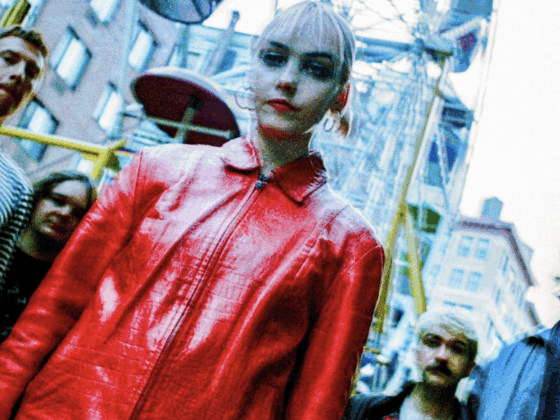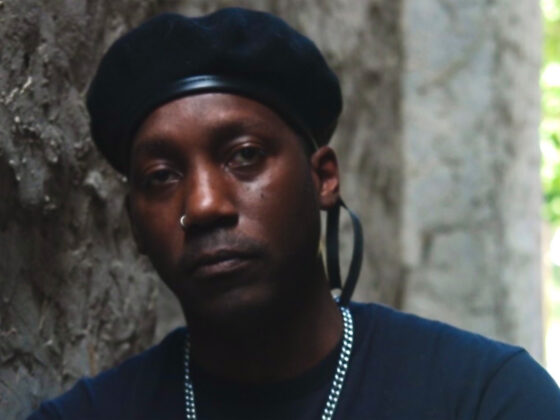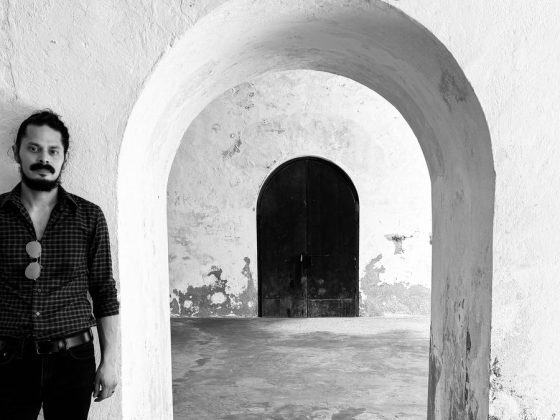Soft Cell‘s Dave Ball, technician, trail-blazer, the other half of Soft Cell, died peacefully in his sleep at his London home on October 22, aged 66.
Born David James Ball in Chester and adopted in Blackpool, he grew up amid the hum of transistor radios and seaside lights. In his late teens, he studied fine art at Leeds Polytechnic, where he met Marc Almond. Together they formed Soft Cell: two art students chasing a vision stitched from soul records and synthesisers.
In 1981, their glacial cover of Gloria Jones’s Tainted Love (and its companion Where Did Our Love Go by the Supremes) conquered the world. Its spare arrangement and mechanical pulse carried something both alien and intimate. Ball was the quiet half of the partnership, a man who preferred circuitry to spectacle.
“Marc, this gay bloke in makeup; and me, a big guy who looked like a minder,” he once said.
The contrast became their power. Powerful contemporaries of Depeche Mode, Fad Gadget, Gary Numan, and Ultravox, the duo called themselves Soft Cell, a pun, as he put it, on “consumerist nightmares and suburban insanity.” Soft Cell’s Non-Stop Erotic Cabaret opened like a seedy West End revue: part mirrorball, part mirror. Ball’s synths buzzed with menace and melancholy, his hands shaping pop’s future while Almond delivered its sins like Elmer Gantry in a gimp mask. Two more albums followed: The Art of Falling Apart and This Last Night in Sodom. Both pushed further into decadence and despair before the duo split in 1984.
Ball’s restlessness rarely let him linger in one scene. After Soft Cell’s implosion, he gravitated toward the avant-garde, collaborating with Throbbing Gristle’s Genesis P-Orridge and forming a string of new outfits. The most successful was The Grid, his partnership with Richard Norris. Between late nights and long mixes, Ball lent his hand to pop as well, co-writing and producing for artists such as Kylie Minogue, contributing to her 1997 album Impossible Princess.
Fame had its benefits and burdens. “I loved being able to afford my first home, having money and travelling, which makes me sound like a Miss World,” he quipped. Yet he also confessed, “Newfound wealth meant we could afford newfound drugs to relieve the boredom.” He survived the decade’s excesses, wrote a memoir, and remained disarmingly candid about the industry’s illusions.
Soft Cell’s legend grew in their absence, however. Nine Inch Nails counted them among their influences, and the duo reunited after the millennium for Cruelty Without Beauty, a record and tour that proved the voltage still ran strong. Another return followed in 2018, yielding two new songs and, four years later, Happiness Not Included…music that folded age and experience into its steady hum.
Reunited with Almond, he finished their upcoming album Danceteria only days before his death; a poetic swan song, indeed. Danceteria took its name from the New York club they once haunted in the early 1980s, a place where irony and excess shared the same mirror. Ball endured years of ill health: fractured vertebrae, broken ribs, a wrist shattered in a fall. Pneumonia followed, then sepsis, and seven months in hospital. But even that could not dull his humour or ambition. “I had strange recollections when I was in and out of hospital because I was on morphine,” he said. “The new songs are a digital reflection of the sounds in my head from that time.”
“It’s so sad as 2026 was all set to be such an uplifting year for him, and I take some solace from the fact that he heard the finished record and felt that it was a great piece of work,” Almond reflects. “Dave’s music is better than ever. His tunes and hooks are still unmistakably Soft Cell, yet he always took it to the next level too. He was a wonderfully brilliant musical genius and the pair of us have been on a journey together for almost 50 years. In the early days we were obnoxious and difficult, two belligerent art students who wanted to do things our way, even if it was the wrong way. We were naive and made mistakes, although we never really saw them as such. It was all just a part of the adventure. Dave and I were always a bit chalk-and-cheese, but maybe that’s why the chemistry between us worked so well.”
Ball’s life was a study in the industrialization of emotion. He was the dreamer behind the curtain: the man who found beauty in machines and romance in restraint. He leaves behind the music, the memory, and that immortal pulse that has made the world dance for nearly five decades.
“Thank you, Dave,” Almond said. “I wouldn’t be where I am without you.”
Follow Soft Cell:















 Or via:
Or via: